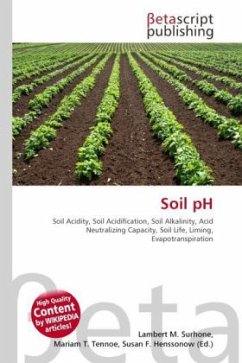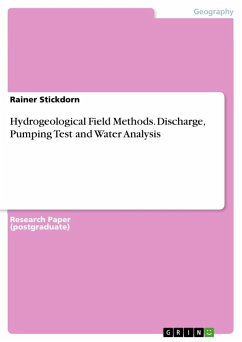High Quality Content by WIKIPEDIA articles! High Quality Content by WIKIPEDIA articles! Soil pH is a measure of the soil acidity or soil alkalinity. An acid solution has a pH value less than 7. While a basic solution always has a pH larger than 7, an alkaline solution (i.e., a solution with positive acid neutralizing capacity), can also be defined as the negative logarithm of hydrogen ions in the soil. It therefore does not necessarily have a pH larger than 7. For details on the relation between pH and ANC, see acid neutralizing capacity. Soil pH is an important consideration for farmers and gardeners for several reasons: Many plants and soil life forms have a preference for either alkaline or acidic conditions, affecting the choice of crop or plant that can be grown without intervention to adjust the pH. Diseases affecting plants also tend to thrive in soil with a particular pH range. The pH can affect the availability of nutrients in the soil. The majority of food crops prefer a neutral or slightly acidic soil (pH 7). Some plants, however, prefer more acidic (e.g., potatoes, strawberries) or alkaline (e.g., brassicas) conditions.
Bitte wählen Sie Ihr Anliegen aus.
Rechnungen
Retourenschein anfordern
Bestellstatus
Storno








